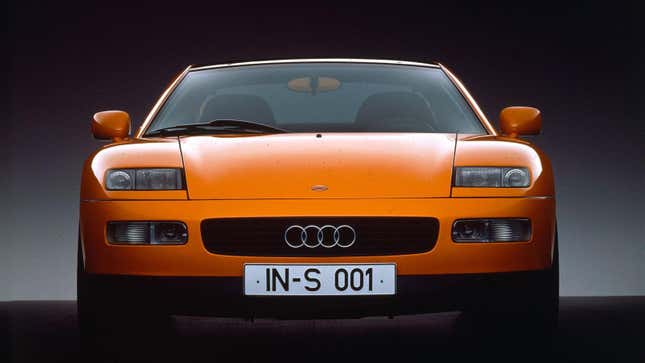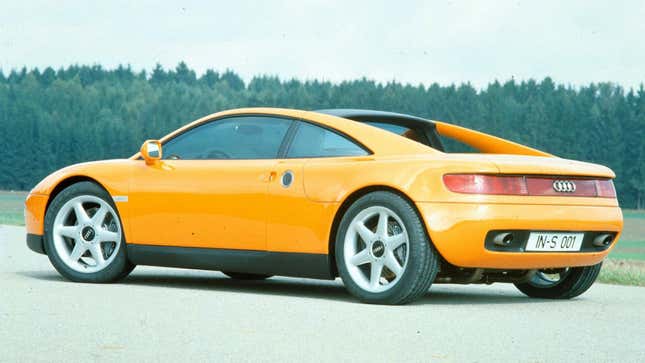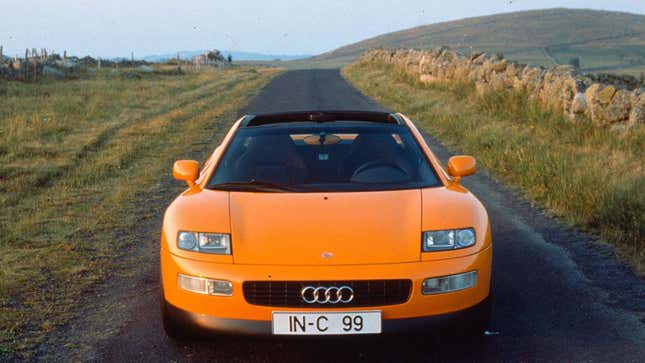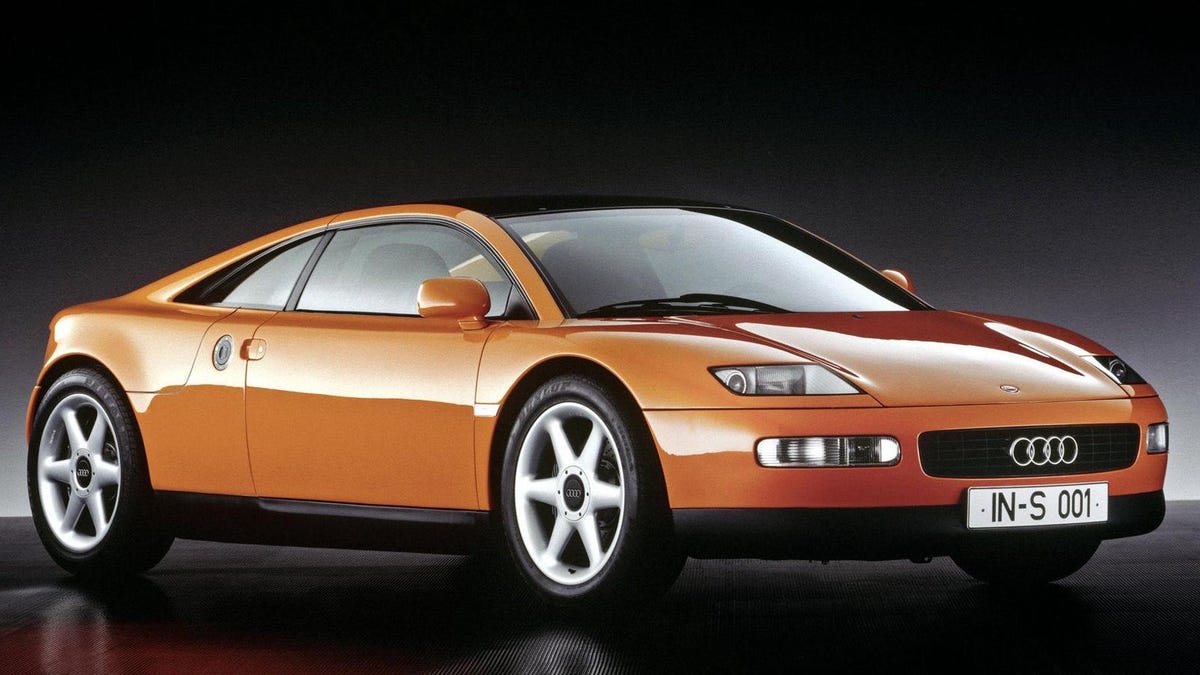The Audi R8 will likely go down as one of the most iconic sports cars of all time, but before Iron Man’s original car of choice debuted in 2006 there was another; a cheaper, smaller version of the R8 called the Quattro Spyder Concept.
In the early 1990s, Audi was riding a performance image high. The Quattro sports car had been kicking WRC ass all throughout the 1980s. By the ’90s, the company wanted a follow up that would be more premium and upmarket than the Quattro. Audi designers and engineers got to work. The result was the Quattro Spyder Concept.

Shown at the Frankfurt Motor Show just weeks before the W12-powered Avus, the Quattro Spyder had production intent. It was a handsome design with a front fascia that reminds me of VWs W12 concept (even though that design came years after this.) It had clear headlights, and a rather narrow grille flanked by side marker and driving lights.

Around back was a taillight setup that almost looked like a light bar with dual exhaust outlets. The wheels were massive — for the time anyway. Audi designers gave the Quattro Spyder 18-inch Speedline wheels, behind which sat ventilated disc brakes with ABS. One of the most interesting parts of the concept’s design was its roof.

It wasn’t just a spyder in name. The Quattro Spyder came with a pair of slick glass roof panels that could be lifted out and stored above the engine cover. The picture above is one of the only ones to exist that barely show the roof panels open, but there is a promo video of the concept showing how it works.
Similar to the R8, the Quattro Spyder was aluminum bodied. It used a tubular steel space frame. It was a small sports car though, with a wheelbase measuring just 100-inches. Its lightweight body also helped it weigh just under 2,500 pounds. The powertrain for the Quattro Spyder was a clear indicator that Audi wanted to build this thing. Audi used an off the shelf V6 for the Quattro Spyder.
It took the 2.7-liter V6 from the 100 and mounted it transversely in the rear. It made 172 horsepower and 181 lb-ft of torque. This was paired with a five-speed manual transmission and of course Quattro all-wheel drive. Audi was shooting for a zero to 60 mph time of 5.7 seconds and a top speed of 155 mph. If this had gone into production there was a huge downside: in typical Audi fashion, it’s said that in the event of service, the entire engine would have to be removed.
The Quattro Spyder was a hit. So many calls came for Audi to build it that the automaker was rumored to have received over 3,000 pre-orders, according to Top Gear, which is wild for a concept car. Sadly though Audi backed out of building it.
You see, Audi wanted to sell the Quattro Spyder for the equivalent of $55,000 at the time, a price that the automaker couldn’t make work financially. Projected production numbers were also too low; Audi wanted to build just 25,000 over the course of the model’s life. That number though was so low that production would have had to be outsourced to another company. There was also pressure on Ferdinand Piech — Audi’s CEO at the time — to not make the model because it might have taken sales from Porsche, which was unacceptable.
It’s interesting to see how close this thing came to production though. Had Audi made it, cars like the TT and R8 might have been radically different than we came to know them. Or might not have even existed at all.

